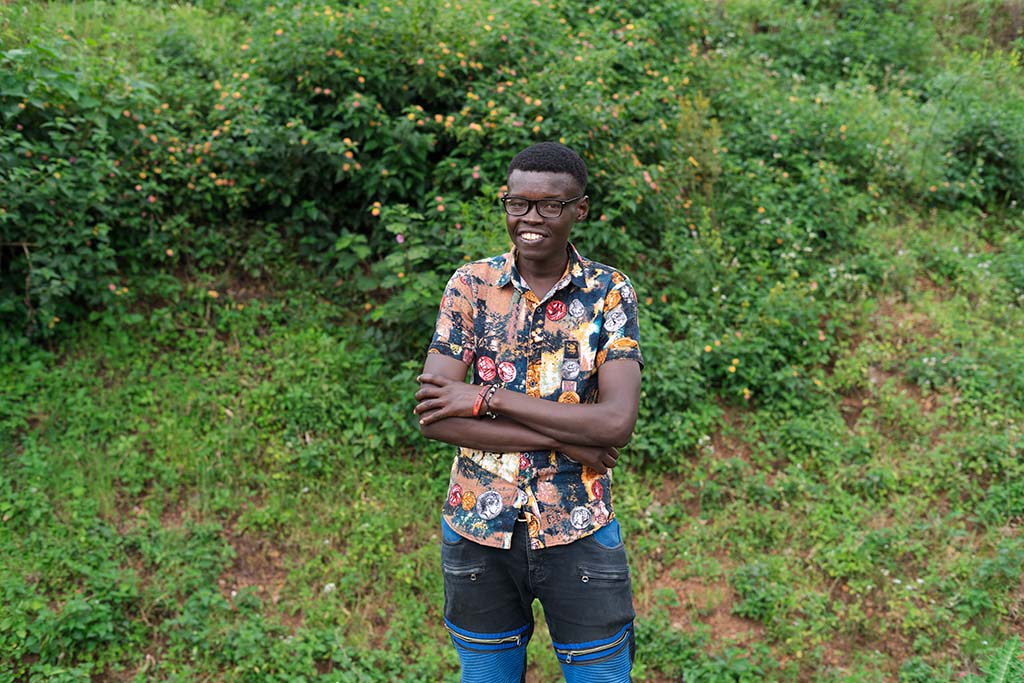Educating peers on sexual and reproductive health and rights in Rwanda
Through participating in youth dialogue sessions, Bocso wanted to improve his knowledge of sexual and reproductive health and rights and gender equality. Now, he organises weekly activities for his community—passing on his learnings to peers and encouraging open conversations.

In 2022, The Kvinna till Kvinna Foundation’s partner organisation Haguruka conducted a series of youth dialogue sessions in the Musanze and Gasabo districts of Rwanda. These sessions, run by trained community facilitators in collaboration with Haguruka, provide a safe space for young adults to discuss topics around gender equality, women’s rights and sexual and reproductive health and rights.
To foster communication and dialogue, Haguruka works with mixed groups of both boys and girls. All of them are between 18 and 30 years old.
For 27-year-old participant Bosco, the sessions came at just the right time. He believes the knowledge provided by Haguruka is well-needed in his community.
“There are things we knew, and things we didn’t know,” says Bosco. “The knowledge I’ve gained has been a benefit to me, as well as a benefit to the people I live with in my community.”
Safe spaces for exchange
Bosco first joined the dialogue sessions to learn more about gender equality and reproductive health and rights. Now, he wants to pass on his learnings to others in his community with the aim of encouraging open conversations amongst them. This includes passing on information to younger peers and answering some of their questions, as Haguruka’s sessions are designed specifically for young adults.
With this, Bosco hopes to help bridge a gap in his community.
“Where we live, most of the parents don’t have these kinds of discussions with their children,” he says. “So, we as the youth in this community, we try to talk to the children and help to prevent some of the negative effects that might come from the lack of knowledge or lack of information.”
While some information on sexual and reproductive health and rights is taught in school, Bosco says, young people lack safe spaces to ask questions freely. They often find it difficult to open up to teachers in the way that they might with their peers.
Through his initiative, Bosco hopes to contribute to preventing issues such as unwanted teenage pregnancies, a widespread problem in Rwanda. Lack of information on sexual and reproductive health and rights, as well as high levels of gender-based violence, are amongst the main causes.
Raising awareness around violence against women and girls
In addition to educating young adults about sexual and reproductive health and rights, Haguruka’s mixed-group dialogue sessions aim to educate participants about gender-based violence.
When it comes to violence against women, Bosco believes it is important to raise awareness by including men and boys in the conversation.
“By training men, who are the main perpetrators, we can reduce the instances of abuse women and girls experience,” he says.
According to Bosco, the sessions have also helped him to be able to clearly recognise abuse when he witnesses it.
“Now, I know it’s my responsibility to stop an abuse when I see it,” he says.